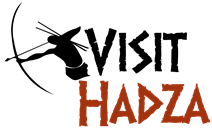Datoga Tribe
Datoga Tribe – The Proud Highland Pastoralists of Tanzania
The Datoga, also known as Taturu, are a semi-nomadic ethnic group primarily found in the Lake Eyasi basin, Manyara Region, and the central and northern highlands of Tanzania. They are known for their strong warrior traditions, rich cultural identity, and distinctive metalworking skills (especially among the Gidangodiga clan).
Lifestyle and Way of Living:
The Datoga are traditionally pastoralists, relying heavily on cattle, goats, and sheep for food, wealth, and cultural value. Cattle are central to Datoga life—they provide milk, meat, and hides and are used for bride price, status, and ceremonial purposes.
In addition to herding, many Datoga also practice subsistence farming, growing crops such as maize, millet, and beans to supplement their diet.
Language and Identity:
The Datoga trace their origins to the Nilotic peoples who migrated southward from the Ethiopian Highlands. They are closely related in origin to the Maasai but have developed a distinct language, culture, and lifestyle. The Datoga speak Kidataoga, a Southern Nilotic language, though many also speak Swahili for trade and communication.
Livelihood and Economy:
Traditionally, the Sukuma are agro-pastoralists, relying on a combination of farming and cattle keeping. They grow crops such as sorghum, millet, maize, cotton, and rice, and are known for keeping large herds of cattle, goats, and sheep.
Livestock holds a central place in their culture—not only as a source of food and income but also as a symbol of wealth and social status.
Social Structure and Values:
Datoga culture is rich and deeply rooted in tradition. They are known for:
Distinctive dress: Women wear leather garments adorned with colorful beads and metal decorations, while men often wear traditional robes and carry spears.
Facial markings: Many Datoga (especially elders) have decorative facial tattoos, which are part of initiation rituals and identity.
Music and dance: Traditional songs and dances play a vital role during ceremonies such as marriages, initiations, and celebrations.
Whatsap Us:
+255 756 914 295




